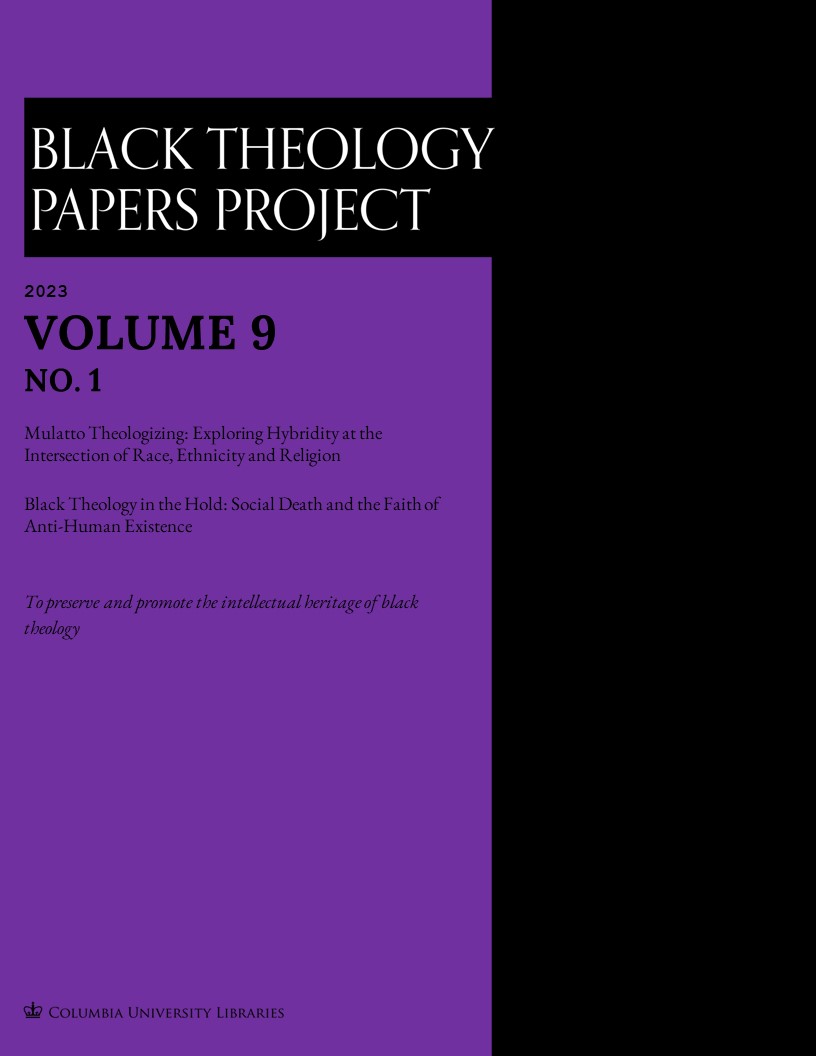Blackness at the End of the World A Theological Ungrounding
Main Article Content
Abstract
This paper argues that there exists no ontotheological grounds for black life. As such, black
religion and, by extension, black theology should consider the ways in which black life is life that
is lived ungrounded. The central claim of this paper notes that categories such as the good life,
the human, freedom, and citizenship are inadequate to account for the reality of black life amid
the totalizing effects of antiblackness. As such, black theology should position itself to imagine
black theology beyond the confines of the science of faith and other colonial markers of life and
humanity. In essence, this paper seeks to make two theological claims/interventions; first, it
questions the use of the category of the human as a liberatory figure through which the black
can attain freedom. Second, it throws into crisis the notion of eschatological time and salvation
and the inability or difficulty to account for the black who has been rendered simultaneously in
and out of time. Ultimately, this paper wants to think with black feminist futurity and Afrofuturist
discourse as generative tools to imagine black life beyond the confines of antiblackness, if at all
possible.
Article Details

This work is licensed under a Creative Commons Attribution 4.0 International License.

